Leadership
Effective Practitioner is moving to Turas Learn
This site will close at the end of March 2024
You will find more information soon on our Turas page at: https://learn.nes.nhs.scot/69961/effective-practitioner
Leadership is the third of the four pillars of practice. Leadership exists at every level and the development of these skills continues throughout a professional career. Strong leadership is also needed for effective management and this section therefor also includes learning on how services are managed.
A leader can be defined as someone who is able to guide and enlist the help of others to achieve a shared goal or vision. A leader does not necessarily have to be a manager - although a good manager should have leadership qualities in order to motivate and interact with team members. There are many different types of leadership styles for example autocratic, democratic, transactional and transformational styles. An effective leader should be able to switch between styles as needed and should have a number of core personal and professional traits such as commitment, passion, decisiveness, professionalism, empathy, resilience and above all the ability to interact with others to achieve results.
Within TURAS you will find a multitude of resources on the topic of leadership and management.
The leadership and management zone is available here (login is not required)
You will find numerous resources and articles on the GoodPractice toolkit
There are also some useful resources to explore here
![]() You can download the Leadership learning
activities.
You can download the Leadership learning
activities.

